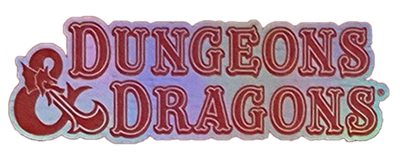(Undo revision 5722 by 67.140.79.129 (talk)) |
(Undo revision 5721 by 67.140.79.129 (talk)) |
||
| Line 7: | Line 7: | ||
| + | ====Alignment==== |
||
| − | |||
| + | Dwarves are usually lawful, and they tend toward good. Adventuring dwarves are less likely to fit the common mold, however, since they're more likely to be those who did not fit perfectly into dwarven society. |
||
====Dwarven Lands==== |
====Dwarven Lands==== |
||
Revision as of 18:39, 9 January 2009
Dwarves are known for their skill in warfare, their ability to withstand physical and magical punishment, their knowledge of the earth's secrets, their hard work, and their capacity for drinking ale. Their mysterious kingdoms, carved out from the insides of mountains, are renowned for the marvelous treasures that they produce as gifts for trade.
Alignment
Dwarves are usually lawful, and they tend toward good. Adventuring dwarves are less likely to fit the common mold, however, since they're more likely to be those who did not fit perfectly into dwarven society.
Dwarven Lands
Dwarven kingdoms usually lie deep beneath the stony faces of mountains, where the dwarves mine gems and precious metals and forge items of wonder. Trustworthy members of other races are welcome in such settlements, though some parts of these lands are off limits even to them. Whatever wealth the dwarves can't find in their mountains they gain through trade. Dwarves dislike water travel, so enterprising humans frequently handle trade in dwarven goods when trade is along a water route. Dwarves in human lands are typically mercenaries, weaponsmiths, armorsmiths, jewelers, and artisans. Dwarf bodyguards are renowned for their courage and loyalty, and they are rewarded for their virtues.
Religion
The chief deity of the dwarves is Moradin, the Soul Forger. he is the creator of the dwarves, and expects his followers to work for the betterment of the dwarven race.
Language
Dwarves speak Dwarven, which has its own runic script. Dwarven literature is marked by comprehensive histories of kingdoms and wars through the millennia. The Dwarven alphabet is also used (with minor variations) for the Gnome, Giant, Goblin, Orc, and Terran languages. Dwarves often speak the languages of their friends (humans and gnomes) and enemies. Some also learn Terran, the strange language of earth-based creatures such as xorns.
Names
A dwarf's name is granted to him by his clan elder, in accordance with tradition. Every proper dwarven name has been used and reused down through the generations. A dwarf's name is not his own. It belongs to his clan. If he misuses it or brings shame to it, his clan will strip him of it. A dwarf stripped of his name is forbidden by dwarven law to use any dwarven name in his place.
Male Names
- Barendd
- Brottor
- Eberk
- Einkil
- Oskar
- Rurik
- Taklinn
- Tordek
- Traubon
- Ulfgar
- Veit
Female Names
- Artin
- Audhild
- Dagnal
- Diesa
- Gunnloda
- Hlin
- Ilde
- Liftrasa
- Sannl
- Torgga
Clan Names
- Balderk
- Dankil
- Gorunn
- Holderhek
- Loderr
- Lutgehr
- Rumnaheim
- Strakeln
- Torunn
- Ungart
Adventurers
A dwarf adventurer may be motivated by crusading zeal, a love of excitement, or simple greed. As long as his accomplishments bring honor to his clan, his deeds earn him respect and status. Defeating giants and claiming powerful magic weapons are sure ways for a dwarf to earn the respect of other dwarves. Template:SRD-dwarves
